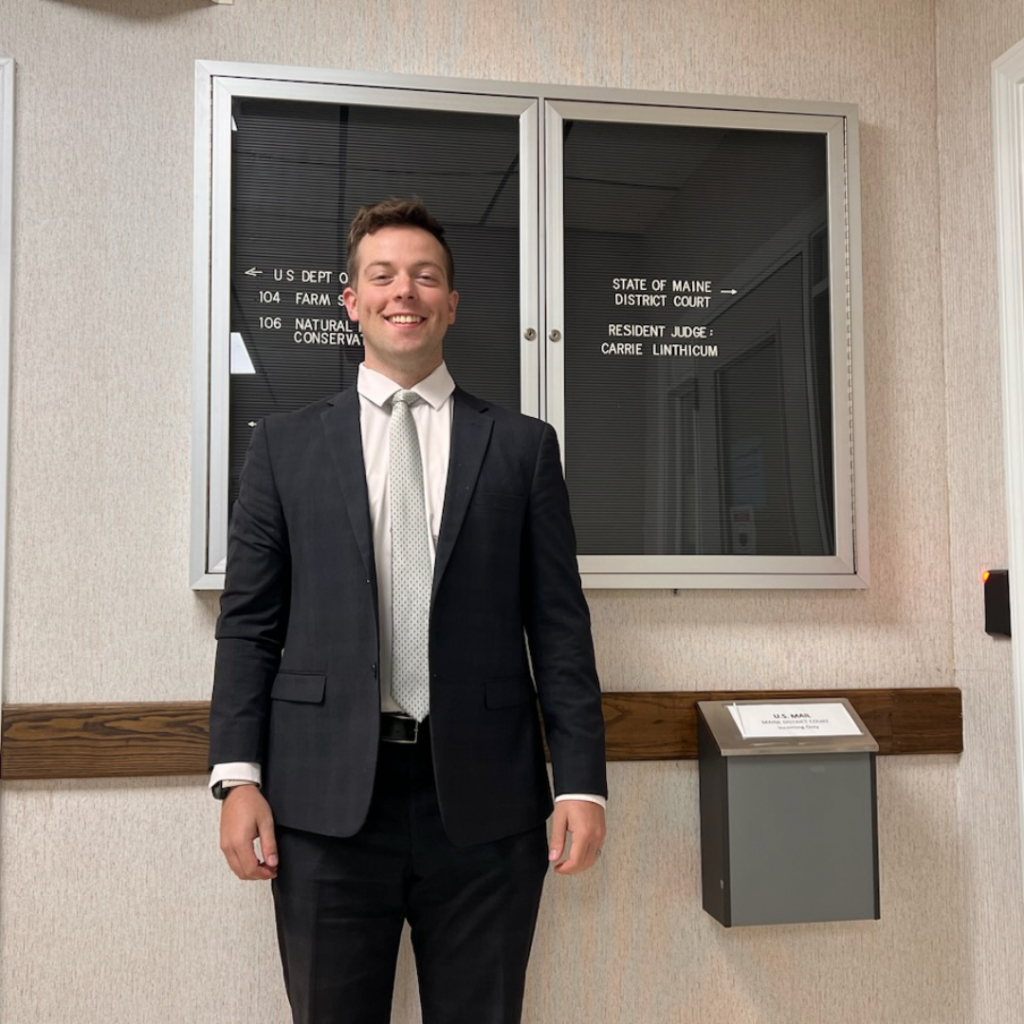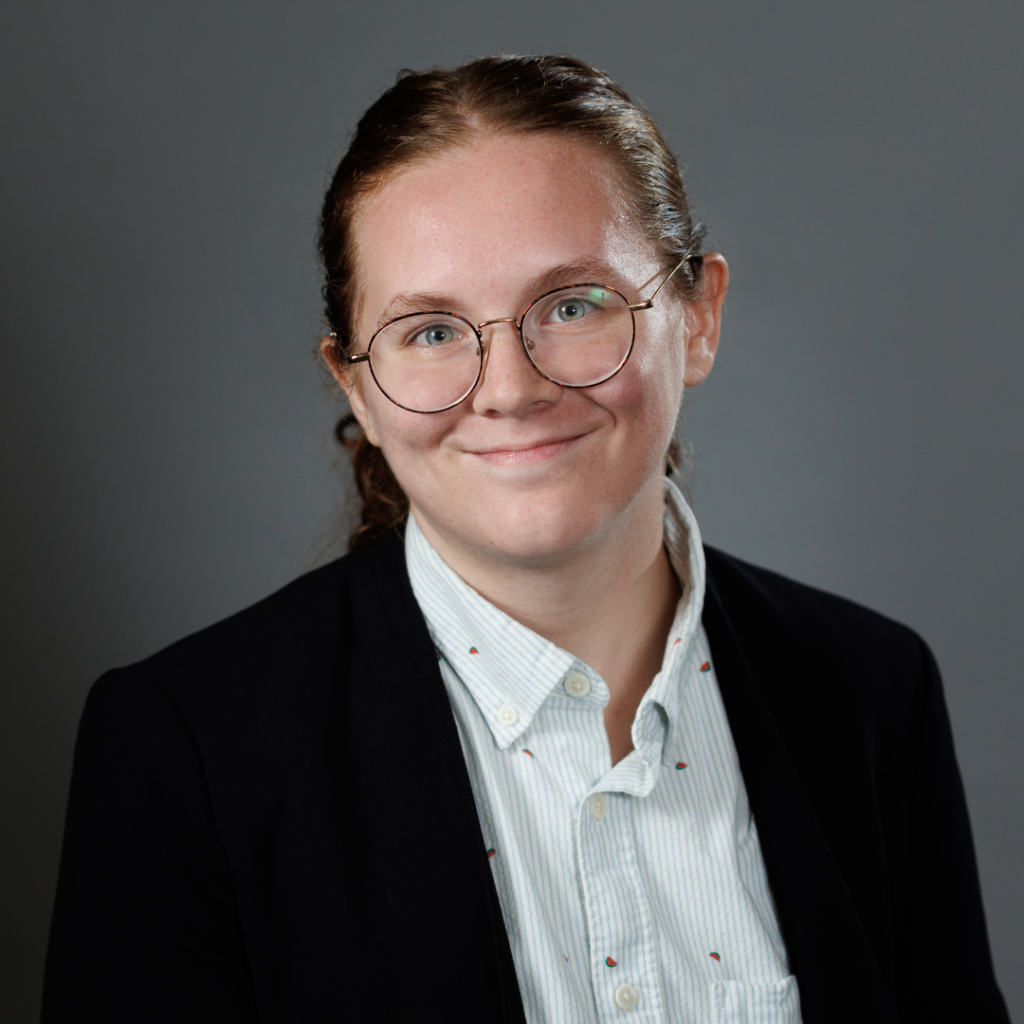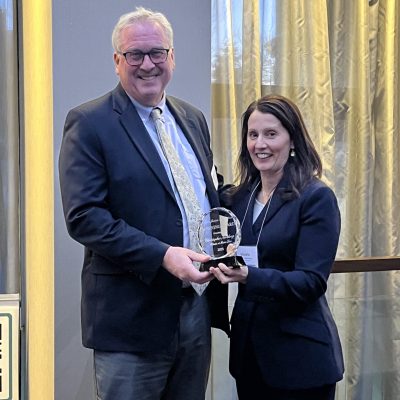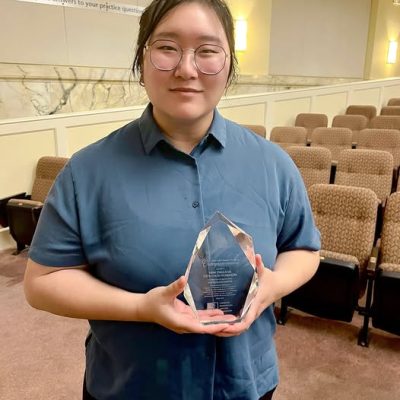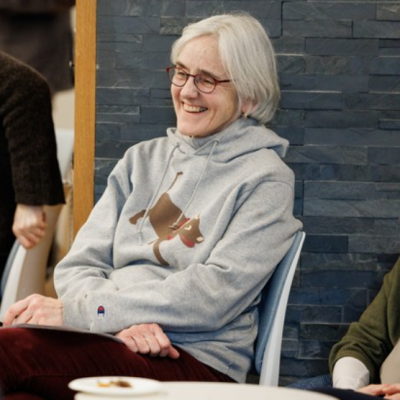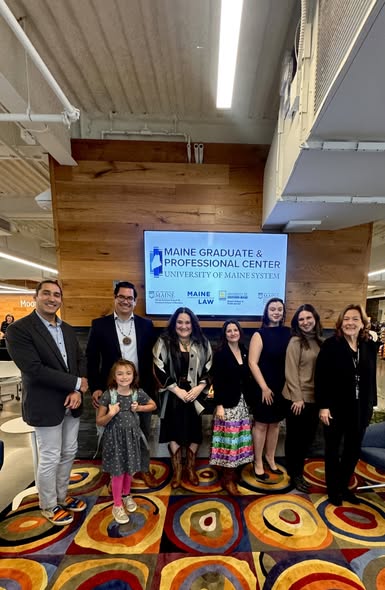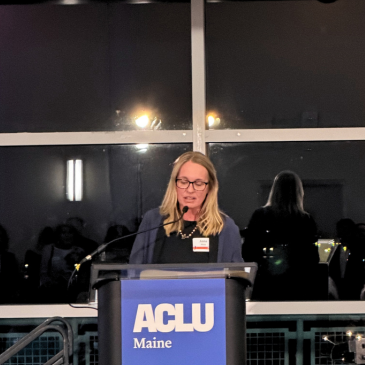Maine Law’s Rural Practice Clinic (RPC) in Fort Kent was established in 2023 as part of a 3 year pilot program aimed at increasing access to representation for communities in and around Aroostook County. Maine is one of many states currently grappling with a shortage of lawyers, especially in rural areas. With support from Maine’s State Legislature and the Attorney General’s Office, this program creates a model that is replicable throughout the state and country.
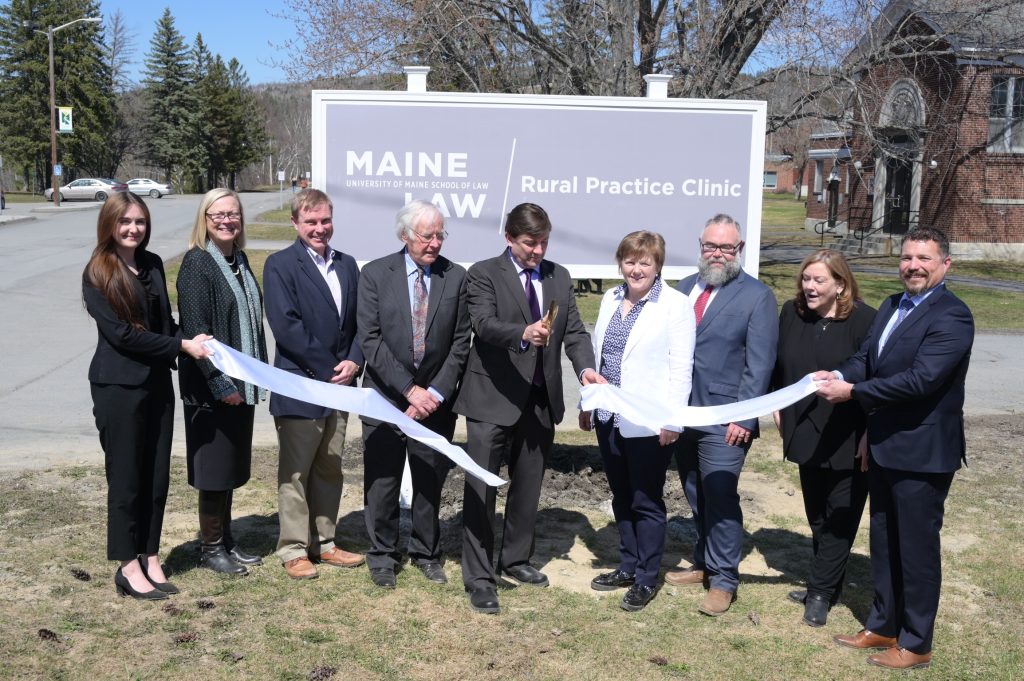
Each semester, two students from Maine Law work at the RPC as student attorneys, taking on cases for local clients, getting to know the regional legal community, and gaining an appreciation for the reality of practicing law in rural communities.
Students receive instruction from onsite faculty as well as clinic faculty and guest speakers at the law school in Portland. The RPC supervising attorney counsels students on the specifics of their cases, overseeing everything from email correspondence to courtroom protocol. Students at the RPC remain part of Maine Law’s clinical program and so are also invited to attend larger clinic training via Zoom or in-person.
Bill O’Reilly and Theresa Norman, now 3Ls, spent their 2024 summer semester working at the RPC and living in Fort Kent. The pace of work and life is a little different up there, they agreed. Follow along as they walk us through a typical day in the life of an RPC student attorney.
Mornings
“I’d get up around the same time every morning in Fort Kent, have the breakfast, do some course work, and then maybe meet up with Theresa to walk over to the clinic, which was about five minutes away,” O’Reilly said.
In collaboration with the University of Maine Fort Kent, the clinic offices are on campus and student attorneys live in dormitories, ensuring easy access to campus, the court, and the town.
“I brought an electric scooter with me but I didn’t really need it because everything was so close,” O’Reilly laughed.
Once in the office, Norman said they’d both take the chance to review their calendars for the day or week, prepare for any upcoming client meeting, prepare for court, and work on email drafts.
If it was a court day, the pace would prove a little more harried, prepping materials and going over arguments.Lunch is just a walk away, whether it meant walking to the nearby grocery store or frequenting one of the restaurants downtown.
“Fort Kent might be one of the few places you can still find a burger for under $10,” Norman said. “It’s a great place if you like to eat really good, affordable diner fare.”
Afternoons
When not in court in the afternoon, O’Reilly said he took advantage of the close-knit legal community in Fort Kent, often calling up local attorneys.
“Attorneys in and around Aroostook County were very happy to encourage anyone interested in legal matters up there,” he added. “They made themselves available to talk through issues and were always happy to help.”
Norman and O’Reily both had the opportunity to get to know clients and members of the legal community well, which created a level of civility O’Reily found appealing.
“Although I often spent time in opposition to the District Attorney up there I appreciated his patience and professionalism,” he said. “Seeing the way people conducted themselves, in part because it’s such a small community, made me drawn to the idea of practicing rurally.”
The other side of living and working in a small town, Norman said, was running into clients, feeling connected to their lives and their issues.
“Because of the pace of things I felt close to many of my clients, really able to take the time to get to know them,” Norman continued. “Seeing them not just in the office but at the grocery store or downtown made me feel more connected to them and more connected to my work.”
The work that filled the days of student attorneys never fit neatly into one category. The nature of rural law is that many practitioners must be skilled in a variety of areas due to the shortage of legal experts at hand, Christopher Northrop, Director of the RPC said.
“Given that the essence of running a small town practice is working with a wide range of legal issues, the Rural Practice Clinic takes a very broad view of potential clients and case types. Over the last year we have worked with clients on family, criminal, probate, small claims, unfair debt collection, protective custody, and other legal matters,” he explained. “RPC upcoming projects will include Lawyer of the Day services and a courthouse assistance program, as well as offering outreach on campus and in the community on various topics.”
Evenings & Weekends
Both students enjoyed exploring the natural beauty of Northern Maine in their free time. Before moving up there, Norman made a list of activities she wanted to check off, many of them hikes. There was no shortage of options. One of her favorite spots was the old Loring Air Force Base, which has been converted into a nature preserve with hiking trails and opportunities to explore the old, preserved bunkers.
Meanwhile, O’Reilly took advantage of the in-town trail networks. He’d also set himself a goal for the summer, which was to run 5K everyday that summer, a goal that access to the outdoors made easily attainable.
“I don’t think I repeated a trail until about halfway through the summer,” he recalled.
Norman and O’Reilly agreed that although they worked full-time at the clinic the balance between work and downtime felt right and both now see a life in rural law as an essential component of their future legal careers. They also liked the challenges presented by a rotating slate of cases and the opportunity to get to know a cross-section of the community through their work.
“In a rural community it’s easy to see the immediate impact and importance of your work,” Norman reflected. “You see the people you’ve helped living their lives in the community and you feel like you contributed to their quality of life. To me, that’s meaningful work.”

